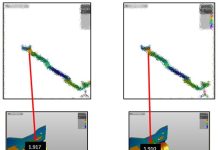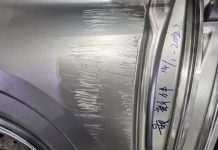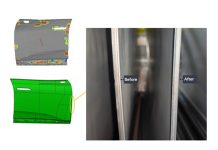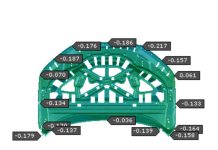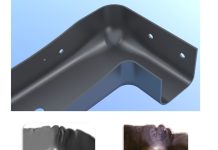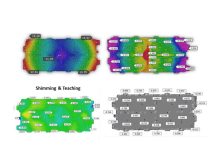Case Study from Volvo Trucks on Improving Three Parts Using AutoForm-Sigma for a Firewall Panel, Side Roof Panel & a Front Reinforcement for the Back Cabin – the Results are in!
Today’s blog post is special in that it introduces a new series of posts, bringing success stories coming out of our French AutoForm branch to you. This article covers successful robustness optimization for three parts at Volvo Trucks.
 Volvo is the 2nd largest truck OEM worldwide, owning several brands including Renault Trucks, Mack Trucks and UD Trucks. The Renault Trucks stamping center is located at Vénissieux, producing outer panels and structural parts as well as complete cabins for the Volvo and Renault Trucks brands. Given such high stamping production volume it was time to embrace robustness consultations.
Volvo is the 2nd largest truck OEM worldwide, owning several brands including Renault Trucks, Mack Trucks and UD Trucks. The Renault Trucks stamping center is located at Vénissieux, producing outer panels and structural parts as well as complete cabins for the Volvo and Renault Trucks brands. Given such high stamping production volume it was time to embrace robustness consultations.
Spring 2012 saw Volvo Trucks consult AutoForm for the digital improvement of stamping robustness for the first time. Their project target was the production optimization of the then new Renault Trucks T, K and C cabins. AutoForm-Sigma was chosen for the project.
Christophe Duboeuf, Stamping Process Expert at Vénissieux described the main issue, saying ‘During production, there is always a certain degree of parameter variability, such as press force, blank position, material thickness and other parameters depending on the coils, lubrication conditions, etc. More specifically, those variables are likely to cause splits or wrinkles on some part batches during production.’

There was also the issue that the process robustness in tool supplier contracts is limited to a simple assessment of the process capability over a short period of time, the supplier only being involved during the short industrialization phase.
The fact that only a small quantity of parts are manufactured during the first phases of the production not allowing for the validation of the quality produced over a full range of material tolerances posed an important third issue.
In terms of the production constrains, the ramp-up phases of new cabins do not allow a full assessment of the tools’ robustness.
During the investigation phase one of the main targets was to identify a process window which would allow for greater production process stability throughout the part lifetime. The initial results were promising leading Volvo Trucks to buy AutoForm-Sigma after ten months of use.
Three examples, from eleven risky parts analyzed during the project, were presented in France during the 2017 AutoForum event. Being a firewall lining of a cabin, a side roof panel and a front reinforcement for the back of the cabin.

Of those three parts we’ll take a closer look at the side roof panel.
During production ramp-up the part suffered from large splits. In fact, production of a complete 1-hour batch of parts was not possible without experiencing splits, due to the non-robustness of the production process. AutoForm-Sigma identified poor process capability, including a high risk of splits in several areas of the part, predicting a scrap percentage of 400 out of 1000 parts!

In reviewing the process and because no simple process modification was sufficient to solve the robustness troubles, it was quickly decided to fully modify the binder and die. Tool modification and new tryout phases were done at the tool supplier on-site. Once the modifications were made, the basics of the initial tryout are respected in order to identify the required part quality. The process identified a slight increase in material consumption (+4% but necessary and acceptable. The thinning was still within the 24% tolerance. Lastly, no change in the skid lines whereby the limits set by the customer were respected. Then the process was digitally validated.
And the grand final result? According to Volvo Trucks, over the last three years no split has been detected in production, confirming the choices made by the stamping center. The same result of three years ongoing production without splits was also achieved for the other two parts.
For three years now (2014-2016) AutoForm-Sigma has been one of the main drivers leading to a +5% increase of stamping productivity (in terms of effective time of production), while down times due to tooling issues have dropped from 2.5% to 1.5%.
Today a design of experiments is quickly carried out with the software, as without it it’s necessary to have at least 5 years of production in order to have the same feedback through return of experimentation. In addition the specialists from the stamping center have become proponents of the new Sigma-based systematic, being now able to qualify offers from suppliers. Volvo Trucks now uses AutoForm-Sigma as early as possible in the process in order to drive up-stream modifications on products and processesto increase stamping production robustness.
This is a more economic strategy as opposed to last minute emergency interventions.



